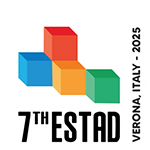Speaker
Description
This paper is part of the work on the EU funded RFCS project SHELL-CRACK that seeks to improve the as-cast slab quality of the shell in continuously cast semis through innovative strategies to control crack formation and microstructure evolution. Cracking initiation and propagation mechanism is a very complex phenomenon and depends on many factors, such as microstructure, cooling rate, cooling homogeneity, mechanical stress, thermal contraction etc. It is therefore very important to develop a quantitative measure, such as cracking index to assess the susceptibility of a solidifying strand to crack formation during the casting process. The objective of this paper is to contribute to a global continuous casting crack index from the mold monitoring perspective.
Building on previous research, such as the investigation of strand surface defects through mold instrumentation and modeling, our study further explores the role of mold thermal monitoring in optimizing slab quality. Current research uses data mining techniques on temperature signals from the HDmoldTC mold monitoring system at ArcelorMittal Avilés to enhance the mold monitoring process by integrating advanced thermal analysis techniques and material property model. Particular attention is given to the development of enhanced temperature variation coefficient formulas and their correlation to thermal contraction and hot crack susceptibility. The analysis reveals that certain steel grades, in particular microalloyed heavy plates and medium carbon steels near the critical peritectic range, show significant variability in thermal contraction and hot crack susceptibility due to compositional variations.
The presented research contributes to the development of a more comprehensive and predictive crack index leveraging the complex relationship between chemical composition, thermal behavior, and material properties. This thesis not only promotes the theoretical understanding of crack formation but also offers practical insights into the improvement of process stability and product quality in the steel industry.
